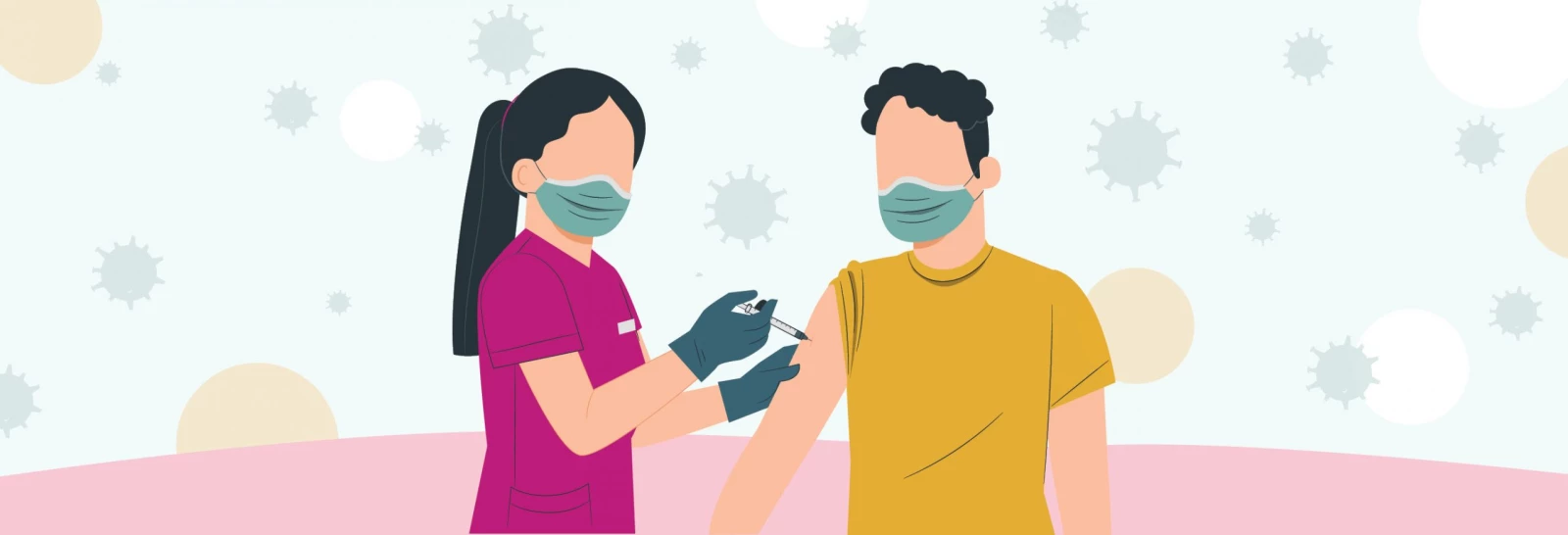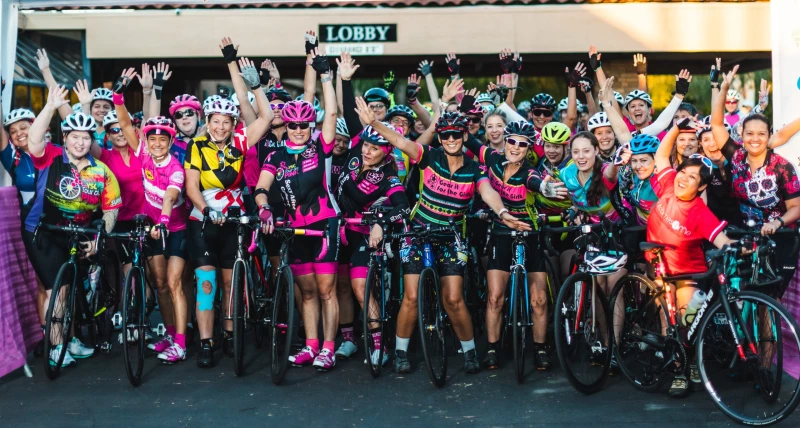Where Are We Now? The Latest on COVID-19 Vaccine Boosters and Extra Doses
With the newest regulations on COVID-19 vaccine booster shots and additional doses for immunocompromised individuals, we wanted to follow up on the most important questions for breast cancer survivors, thrivers and their loved ones.
The information provided currently pertains to eligible adults in the U.S. and does not take the place of advice from your medical provider. Always consult your healthcare team with questions specifically pertaining to your individual treatment and circumstances. Please note that the information provided is current as of the date printed. For the most up-to-date details, visit the CDC vaccine site and the resources listed at the end of this blog.
1. What is the difference between a third dose of the COVID-19 vaccine and a booster shot for mRNA vaccines (Pfizer and Moderna)?
Individuals who are moderately to severely immunocompromised* may receive a third dose of their original mRNA vaccine (Pfizer or Moderna) to improve their response to the vaccine. This may take place at least four weeks after their second shot and is the same dose as they have previously received.
A booster shot is given when the original protection from one’s vaccine has decreased. This is currently recommended at least 6 months after an individual’s second dose of the Pfizer or Moderna vaccine, where eligible**. The Pfizer booster shot is the same dosage as the original, and the Moderna booster is half of the dose.
*Who is considered immunocompromised and eligible for a third dose of the mRNA vaccines (Pfizer and Moderna)?
According to the Centers for Disease Control (CDC), the following groups are considered to have compromised immune systems:
- Been receiving active cancer treatment for tumors or cancers of the blood
- Received an organ transplant and are taking medicine to suppress the immune system
- Received a stem cell transplant within the last 2 years or are taking medicine to suppress the immune system
- Moderate or severe primary immunodeficiency (such as DiGeorge syndrome, Wiskott-Aldrich syndrome)
- Advanced or untreated HIV infection
- Active treatment with high-dose corticosteroids or other drugs that may suppress your immune response
**Who is eligible for a booster shot of the mRNA vaccines (Pfizer and Moderna)?
As of November 19, 2021, all adults over the age of 18 may get a booster shot at least 6 months after completing their initial mRNA series (2 shots). It is especially recommended for individuals 50 years and older or any adult living in a long-term care setting.
At this time, it has not been deemed necessary for immunocompromised individuals to get a booster shot, if they have already received their third dose of a mRNA vaccine.
What about the Johnson & Johnson (J&J) vaccine?
A second dose of Johnson & Johnson (the original dose for J&J is one shot) has been approved and is recommended for anyone over 18 years old who received J&J. This will help to maximize the vaccine’s efficacy. It should be given at least 2 months after the first dose. Individuals who received a second dose of J&J may choose J&J or one of the mRNA vaccines (Pfizer or Moderna) as their booster shot.
To stay up-to-date on current regulations, visit: https://www.cdc.gov/coronavirus/2019-ncov/vaccines/booster-shot.html
2. Should cancer survivors, thrivers living with metastatic breast cancer or those currently in active treatment get either a third shot?
If you are in active breast cancer treatment and/or living with metastatic breast cancer, it is possible that you qualify for a third shot, especially if you are currently receiving treatment or otherwise considered immunocompromised. Active treatment for breast cancer is usually considered chemotherapy, radiation or immunotherapy. It is recommended that you speak with your oncologist or other medical provider to determine the best course of action for you. If you are not considered immunocompromised or in active treatment, you may choose to get a booster shot, if over the age of 18.
3. Can cancer treatment impact the efficacy of vaccines (e.g. does the immune system not respond as well while in active treatment)?
Certain cancer treatments can weaken one’s immune system. Because of this, the COVID-19 vaccines may be less effective for those in active treatment, such as chemotherapy, radiation and immunotherapy. More information is being collected in this population, and it is widely recommended that cancer patients receive the COVID-19 vaccines. Your medical provider will be able to discuss your specific treatments and the appropriateness of additional vaccine doses.
4. If the vaccines are effective, why do I need a booster shot or third dose?
The COVID-19 vaccines still remain highly effective against severe illness, hospitalization and death. However, it is natural to see reduced effectiveness over time, especially as variants such as Delta continue to spread. Third doses and booster shots provide additional protection for the most vulnerable populations at this time.
5. What should I know about swollen lymph nodes as a possible side effect of the COVID-19 vaccine and how it impacts mammograms?
You may have heard that enlarged or swollen lymph nodes are a temporary side effect of the COVID-19 vaccines, especially the axillary lymph nodes. If you had your lymph nodes removed and/or experience lymphedema, you may see an increased chance of swelling in the area. It is best to ask for your shot in the opposite arm from where you had lymph nodes removed and/or have lymphedema. Additionally, it is recommended that you wait to have a mammogram until at least four to six weeks after your last shot. If you feel a lump or have any other concerns, it is always best to consult your medical provider.
6. What should I know about getting the flu vaccine this year?
While the flu shot does not protect from COVID-19, it is just as important to receive one this year. The flu and COVID-19 often show similar symptoms, and both more severely impact immunocompromised populations. Having higher rates of the flu this season will overburden the healthcare system and testing centers, when they need to be as available as possible to care for sick patients. You can increase your chance of protecting yourself and others by getting the flu shot and getting it as early in the season as possible.
7. What is recommended for caregivers of those who are immunocompromised or in active treatment?
For caregivers of individuals who are immunocompromised and/or in active treatment, it is recommended that they get their COVID-19 vaccine for their own protection and their loved ones. Caregivers, if over the age of 18 and either 6 months (Pfizer/Moderna) or 2 months (J&J) past their initial series, are eligible for a booster shot. It can provide additional protection for the individual and those s/he cares for.
To further protect those with weakened immune systems, it may be suggested that caregivers wear masks or take other precautions as recommended by the patient’s medical provider. Ask your healthcare team for individual guidance.
8. What should I know about newer antibody treatments for immunocompromised individuals?
On December 8, 2021 the FDA issued emergency use authorization for AstraZeneca’s monoclonal antibody cocktail, Evusheld. It is preventative of COVID-19 before an individual is exposed to the virus and serves as an additional option for those who are immunosuppressed. Immunocompromised individuals may mount a lower immune response to vaccines, so this is an important advancement in prevention for that population. Find out more at: https://www.fda.gov/news-events/press-announcements/coronavirus-covid-19-update-fda-authorizes-new-long-acting-monoclonal-antibodies-pre-exposure.
Over the last year, YSC has strived to provide its constituents with the most up-to-date information on COVID-19, vaccines and how it impacts our community of young adults affected by breast cancer. From what it means to be immunocompromised during a worldwide pandemic to the vaccine rollout to health disparities and mental health, we hope you’ve felt supported by our virtual programs during these uncertain times.
For additional information on the COVID-19 vaccine, protocols and side effects, we recommend YSC’s and our trusted partners’ COVID-19 Resources:
American Society of Clinical Oncology



